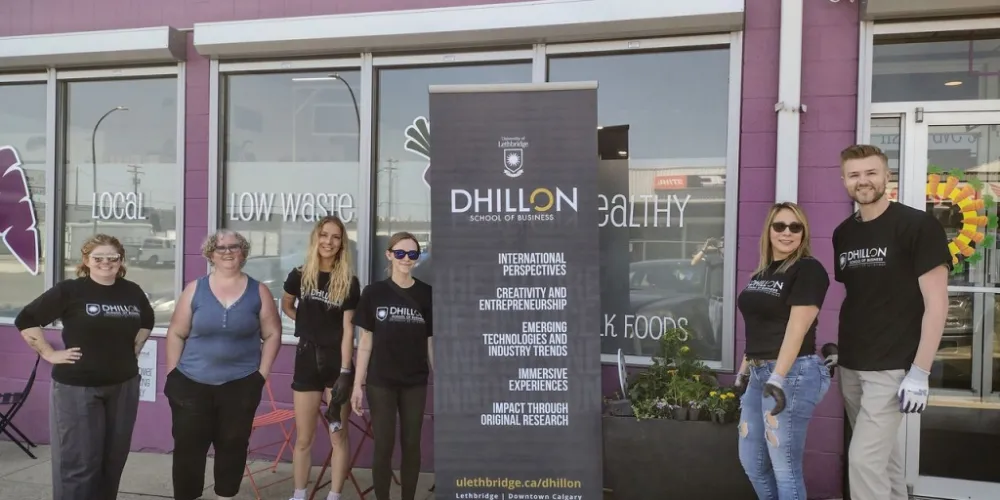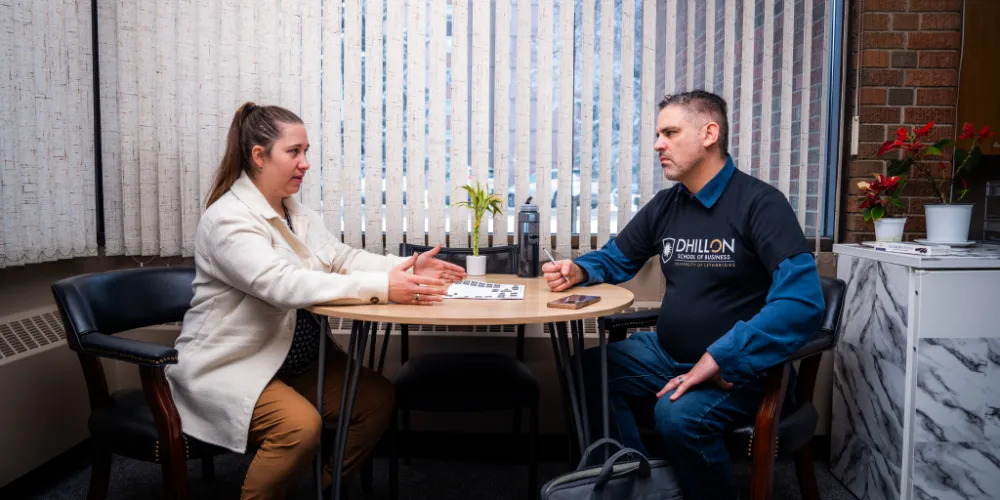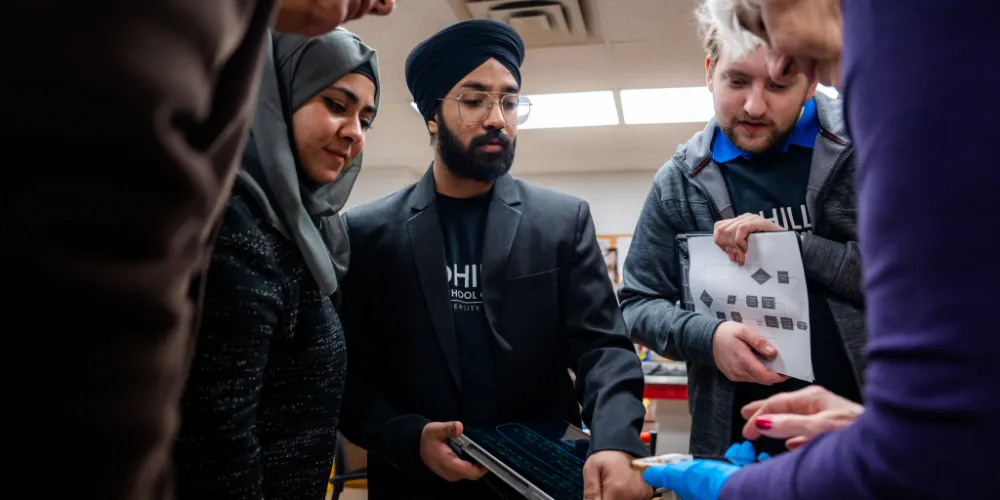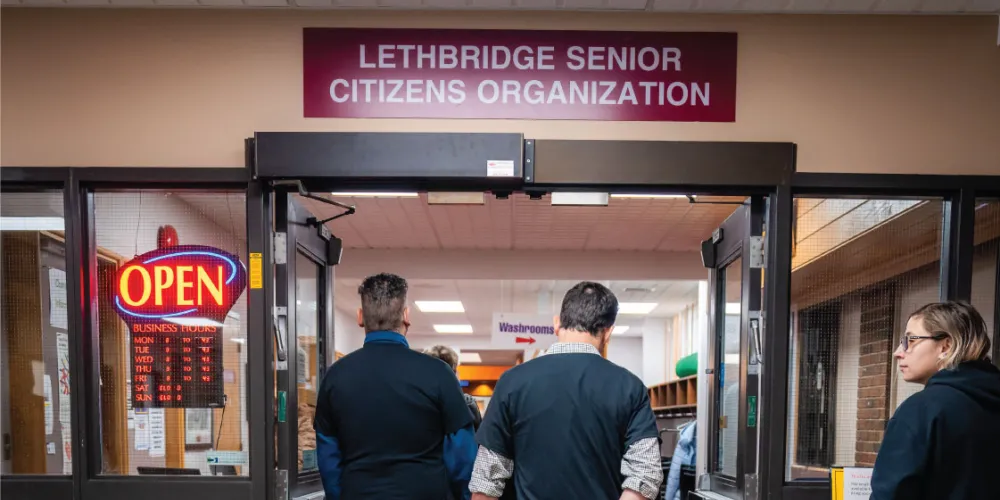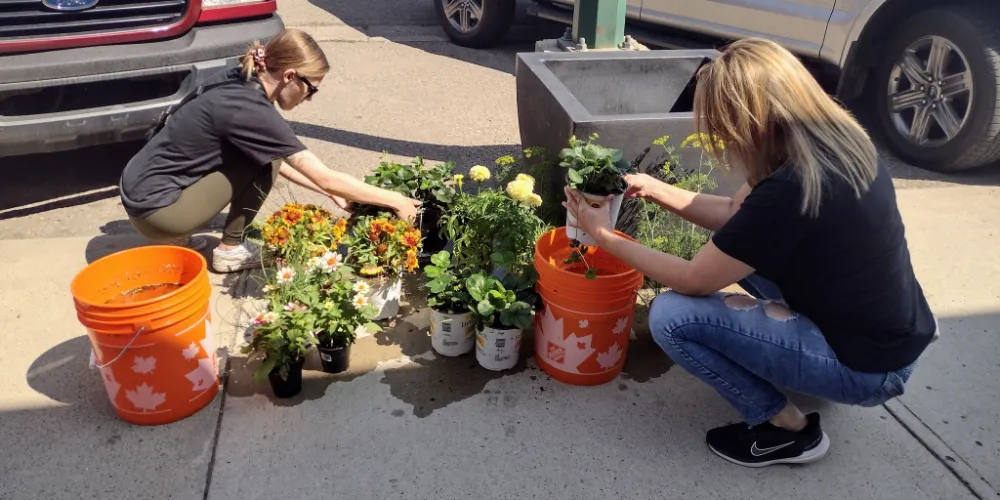Work-based learning
At the Dhillon School of Business, we believe learning extends beyond the classroom. Work-Integrated Learning (WIL) connects students with meaningful work experiences, giving you the chance to test-drive your future careers while earning money and building critical skills.
Students: You’ll have the opportunity to participate in a variety of short-term projects with organizations to gain experience; some for credit and some paid. These opportunities will help you build your resume, professional network and put your academic knowledge from various courses into practice.
Community members: You’ll have the opportunity to submit projects (ie. company problems) that students will work on in classes and provide an agreed upon deliverable back to you. Click here to learn more.
 Meet Mike Sears, an accounting major who spent 16 months working in the industry through our co-op program. Not only did Mike apply his classroom knowledge in real-world settings, but he also emerged as the recipient of the Doreen Kooy Memorial Prize for excellence during his work term.
Meet Mike Sears, an accounting major who spent 16 months working in the industry through our co-op program. Not only did Mike apply his classroom knowledge in real-world settings, but he also emerged as the recipient of the Doreen Kooy Memorial Prize for excellence during his work term.
Work-Integrated Learning offers more than just practical experience—it sets you up for success by:
-
Boosting Career Readiness: With hands-on experience in your field, you'll develop practical skills that can’t be learned in the classroom, such as leadership, teamwork, and problem-solving.
-
Networking Opportunities: Build meaningful connections with industry professionals, giving you a competitive edge when it comes to job hunting after graduation. Many WIL students receive job offers from their placement employers.
-
Higher Earning Potential: Studies show that co-op students often graduate with higher starting salaries than their peers. The skills you acquire during your WIL experiences increase your value in the job market.
-
Academic Growth: Apply your theoretical knowledge in real-world situations, helping to solidify your learning and make connections between theory and practice.
The Dhillon School of Business offers work integrated learning opportunties in four ways:
Community and Industry Research Projects
Students are engaged in research that occurs primarily in workplaces, includes: consulting projects, design projects, community-based research projects.
Entrepreneurship
Allows a student to leverage resources, space, mentorship and/or funding to engage in the early-stage development of business start-ups and/or to advance external ideas that address real-world needs for academic credit.
Field Placement
Offers students short-term, hands-on experience in a relevant field of study. Unlike co-op or internships, field placements don't require licensed supervision and aren't tied to certification hours.
Community Service Learning
Combines community service with classroom learning and reflection. Students partner with organizations to apply their knowledge to real-world challenges identified by the community.
Experiential learning platforms
Students can explore a range of opportunities to apply their academic knowledge through hands-on projects. Whether accessing existing resources or finding their own initiatives, students are encouraged to engage with real-world challenges. For guidance or to learn more about creating your own experiential learning project, reach out to our Work-Integrated Learning team, who are available to assist with any questions.
Level Up
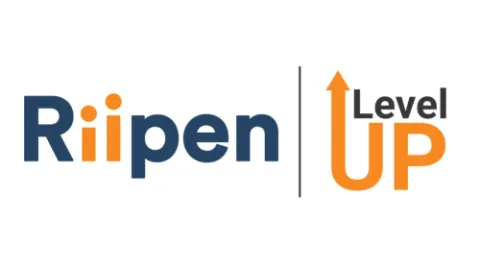
Mitacs
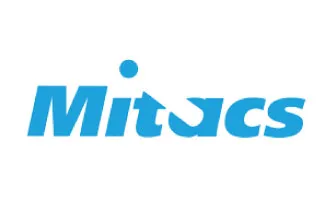
Wavemakers


